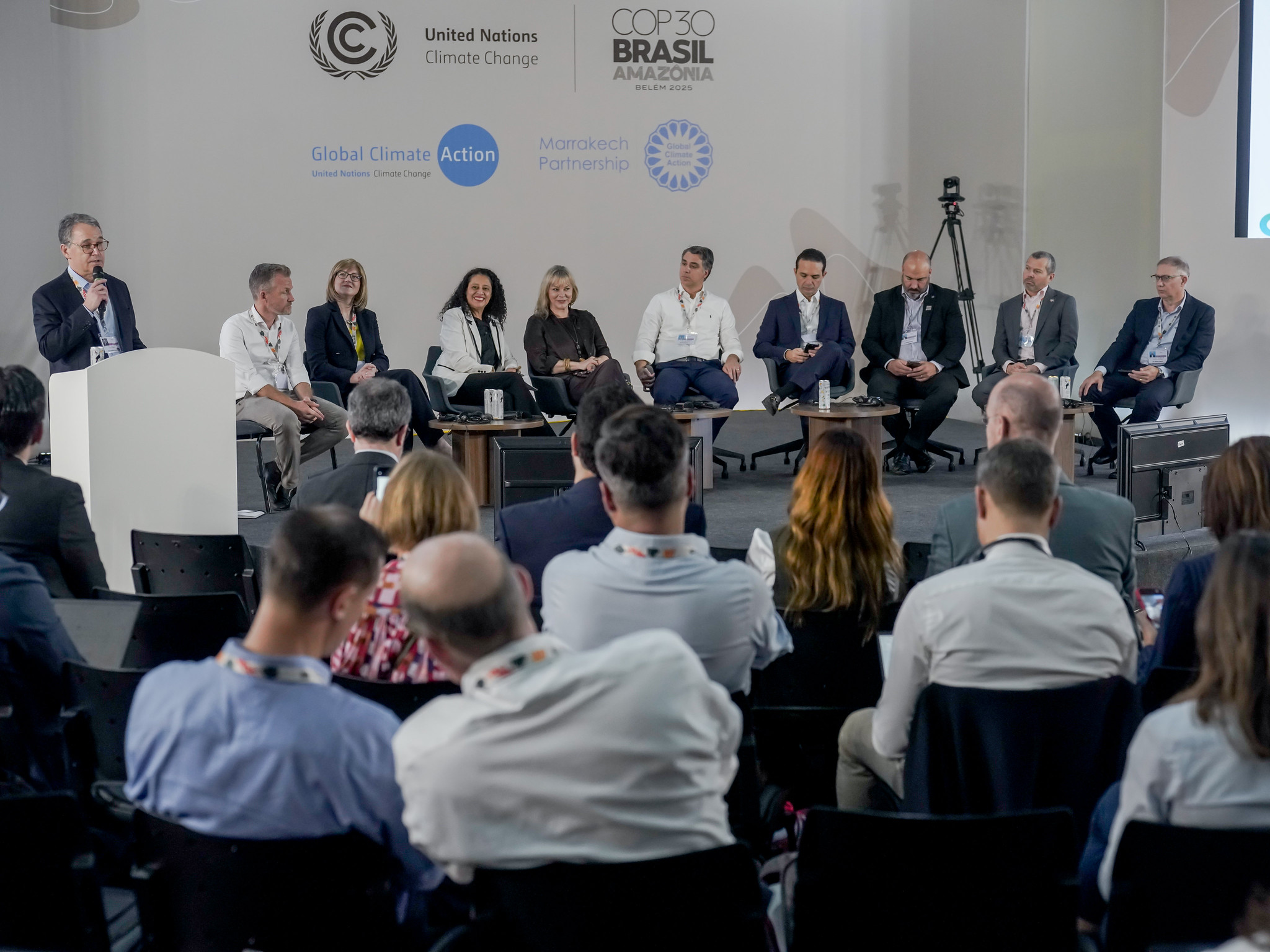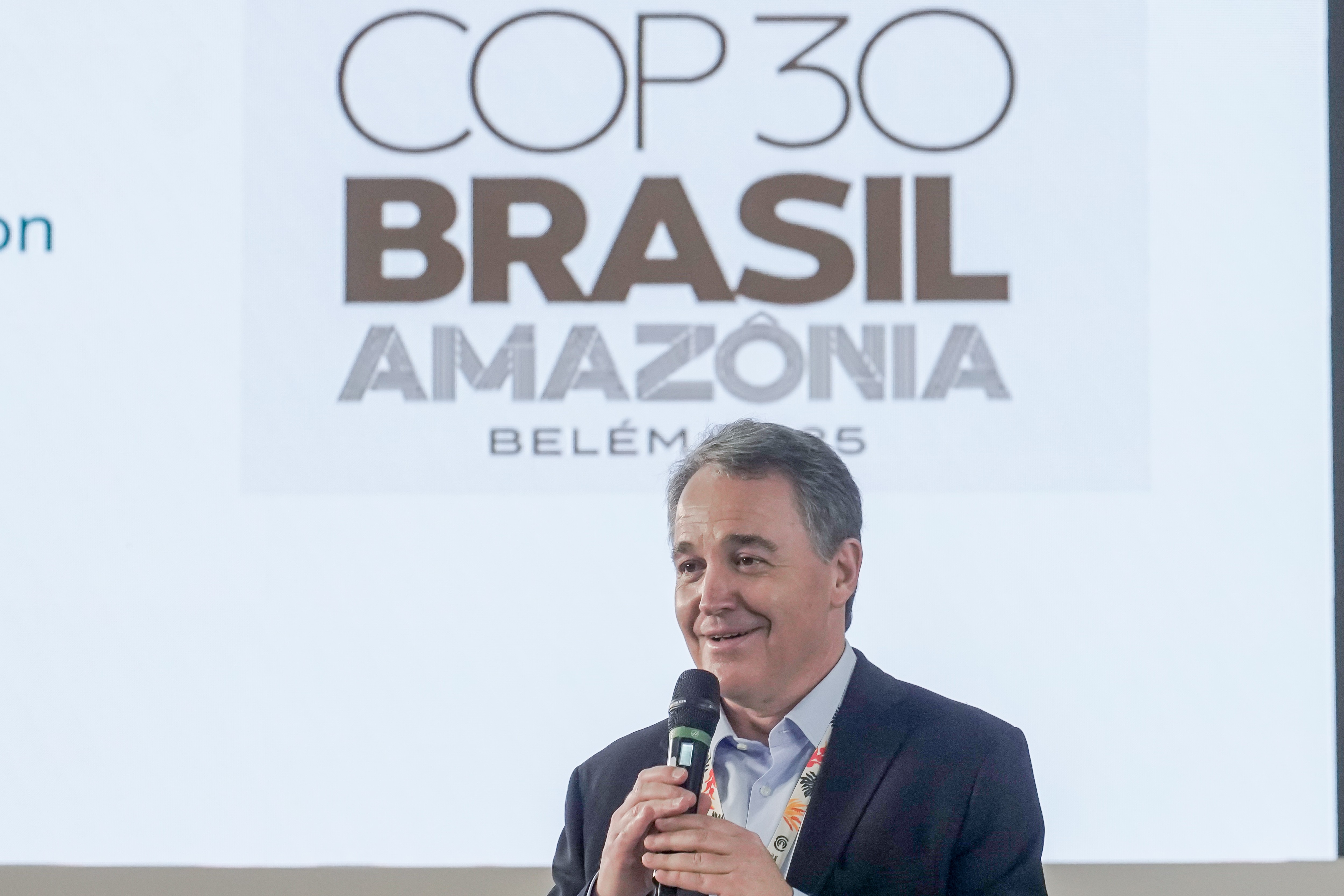COP30 Presidency mobilizes countries and key sectors to implement commitment to quadruple sustainable fuels
Launched at the Pre-COP and now backed by 23 countries, the “Belém 4X” initiative will be implemented through the “Future Fuels Action Plan.”

By Mayara Souto/COP30
A high-level meeting with representatives from governments, companies, and non-governmental organizations was held on Friday, November 14, to advance the implementation of “Belém 4X.” The COP30 Presidency convened the event to reinforce this commitment, which had been launched at the Pre-COP in Brasília, to quadruple the use of sustainable fuels by 2035.
“Belém 4X” is part of the COP30 Action Agenda and aims to provide political support and promote international cooperation to reach this goal, using 2024 levels as a baseline. The target is based on the International Energy Agency’s report Delivering Sustainable Fuels – Pathways to 2035, also released during the Pre-COP.
So far, 23 countries have endorsed the commitment. “The diversity and wide geographic distribution of the countries that have already joined show the importance of sustainable fuels for the energy transition and the global fight against climate change,” said COP30 President Ambassador André Corrêa do Lago.
The Director of the Energy Department at Brazil’s Ministry of Foreign Affairs (MRE), João Marcos Paes Leme, said that political momentum is essential for implementing this international commitment. “This session in Belém brought together representatives from different sectors that support the initiative. We are combining the political push provided by governments with the endorsement of industry and the private sector. They are the ones who will carry out this plan,” he explained.
Paolo Frankl, head of the renewable energy division at the International Energy Agency (IEA), emphasized the study’s findings during the COP30 event. “If existing and announced policies are fully implemented, sustainable liquid and gaseous fuels could quadruple over the next decade. We analyzed markets, incentives, policies, and barriers from a sectoral demand perspective, and this is the result,” he said.
Implementation
To advance “Belém 4X,” a partnership was announced with the Clean Energy Ministerial (CEM), which leads the Future Fuels Action Plan, the only global platform that brings together multiple sectors to advance the adoption of sustainable fuels.
“We have an ambitious government target, and industry and stakeholders are mobilized to meet it. We simply need to ensure that we continue working together across borders, and that is exactly what the Future Fuels Action Plan is designed to support,” said CEM Secretariat Head Jean-François Gagné.

COP30 High-Level Champion Dan Ioschpe stressed that “Belém 4X” is a “call to action” to accelerate the energy transition and expand the supply of liquid biofuels, biogas, hydrogen, and other inputs. “Many of our countries have been producing these fuels for decades. The technology exists, the expertise is established; the challenge is deploying them at scale. The CEM Future Fuels Action Plan provides an implementation platform to turn ambition into action,” he said.
“We can deploy sustainable fuels across multiple sectors — aviation, shipping, heavy industry, the chemical sector, and air forces. To succeed, we need everyone at the table. The energy transition is not a sectoral challenge; it is a systemic one. Governments, private capital, and industry must work together,” said the COP30 High-Level Champion.
High-level representatives from Brazil, Canada, Italy, Japan, and the Netherlands reiterated their commitment to quadrupling the use of sustainable fuels. Leaders from sectors that rely on these materials also joined the meeting, including the International Maritime Organization (IMO), the International Civil Aviation Organization (ICAO), and Toyota Brazil, among others.
